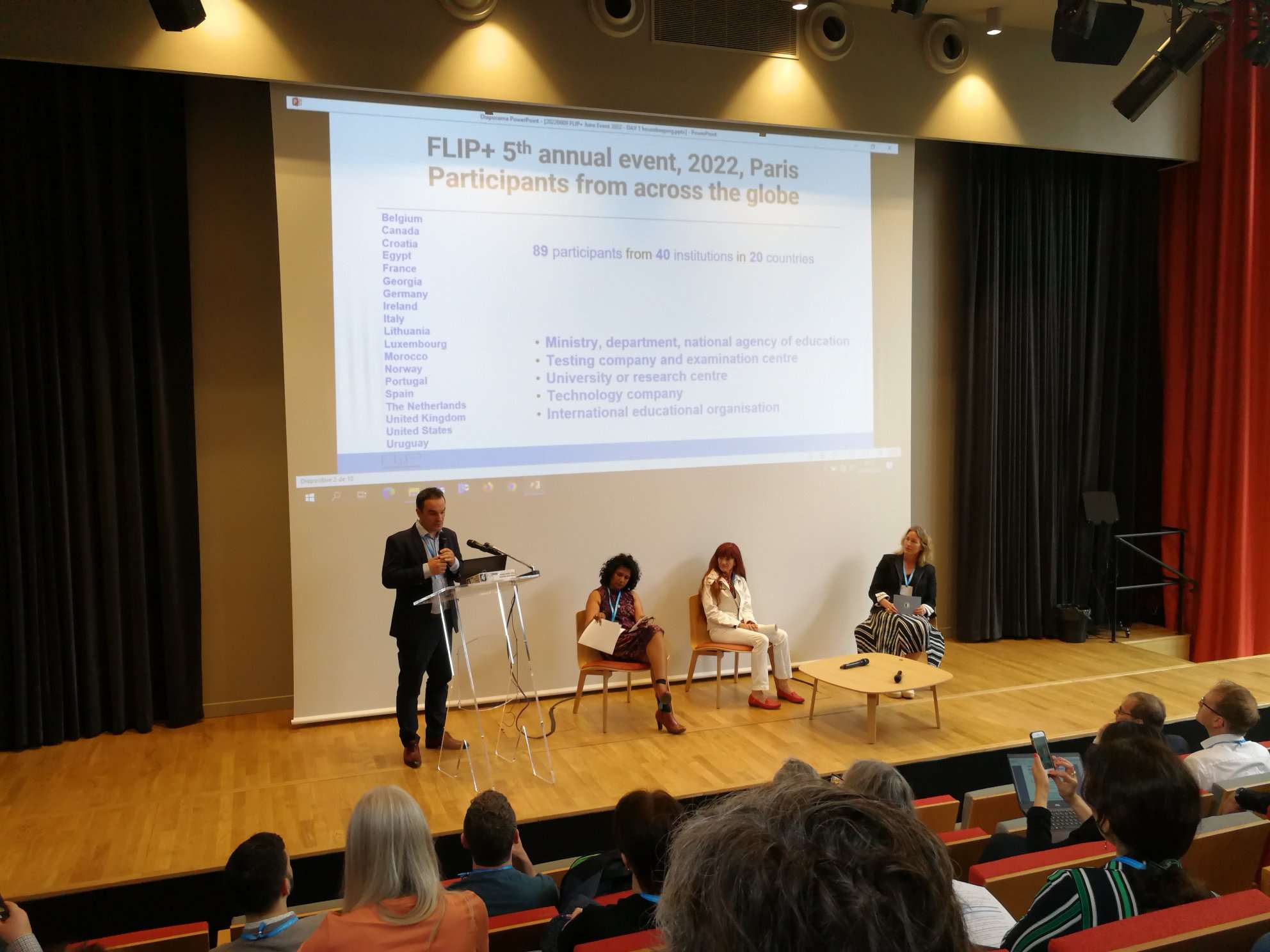
cApStAn in Paris at a FLIP+ meeting, a space to share knowledge and best practices in e-assessments
cApStAn co-founder Steve Dept was in Paris on June 9-10, 2022, at a meeting of the FLIP+ Association, a group of public institutions who switched from pencil-and-paper to computer-based assessment (CBA) for their national examinations, or who are introducing digital central assessments for the first time. The acronym? The first four participants were France, Luxembourg, Italy and Portugal. Then many other countries joined, Brazil, Denmark, Georgia, Ireland, Lithuania, Morocco, Norway, Spain, Sweden, you name it. FLIP+ is about sharing. Countries share their experiences, their technology, their assessments, their successes and their mistakes. There is pride and humility, and a common awareness of the scope and challenges involved in digital assessments and innovative item types.
There were over 100 participants at the meeting, of which about 70 came from abroad. The venue was the amphitheatre of a state boarding school, the Lycée d’État Jean Zay, with view on the school’s greens, right in the picturesque 16th arrondissement of Paris. The Flemish Community of Belgium, Spain, Ireland, Georgia, Lithuania and the UK summarized their transition to digital assessment, the hurdles they stumbled on, and how close to (or how far away from) the Holy Grail they felt they had come at this point in time. There were also solution providers attending, with expertise in testing platforms (OAT), in assessment microanalytics (AMA) or in test adaptation (cApStAn), who brought to the table open-source software, open standards, and interoperability. And test developers and psychometricians too.
cApStAn’s expertise in cross-language comparability of test items is relevant to the members of the FLIP+ association in several areas:
- A number of countries administer tests in several languages and need to establish equivalence across the language versions of the exams. They were asking about training scenarios for their test translators.
- Countries wishing to share sample items may have these available in their national languages, and had questions about a cost-efficient process that could be followed to make these available in a lingua franca.
- The reading load of the test questions can be detrimental to respondents who do mater the skills that are being assessed but are not proficient readers of the test language.
The exchanges were very lively, and it was fascinating to see the level of dedication of the national teams involved in pivoting to e-assessment, reports Steve. “These are solution-oriented people bristling with creativity when facing the complexity of this endeavour”.